Sabrina is a five-time cancer survivor. Watch part four of her Cancer Diary. (Video: UHN)
My name is Sabrina Fuoco and I am a five-time cancer survivor. I have been battling this gruelling illness for 31 years: as a child, teenager and young adult. Over the years, cancer has taken my health, my hair, my energy, chunks of my body and sometimes even my sanity – but it has also given me a gift – to live life meaningfully and with great urgency. Not knowing whether I have months or years to live has forced me to live life in the moment and enjoy the present.
This is my open letter to cancer.
This is the final instalment of the 'Dear cancer' series.
Dear cancer,
By the age of 29, I had survived rhabdomyosarcoma, thyroid cancer, a malignant peripheral nerve sheath tumour, pre-cancerous fibroids in my uterus, and leiomyosarcoma on my kidney. Consequently, I had undergone surgeries to remove my right kidney, uterus and thyroid.
But you – cancer – just kept coming back for more. There had to be a reason why all of these secondary cancers were popping up. Genetic counsellors at Sick Kids suggested I get tested for Li-Fraumeni syndrome (LFS), a rare syndrome in which patients are predisposed to cancer – most commonly breast and brain cancers, acute leukemia, and sarcomas.
The test results were in. At age 29, I was diagnosed with Li-Fraumeni. My cancer toll was now up to four.
And you were coming back for more – cancer number five.
Related to this story:
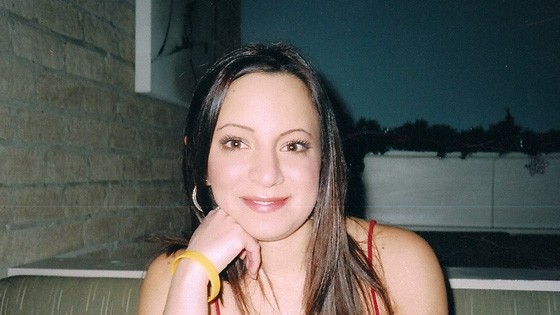
Today, Sabrina is 34 years old. (Photo: Sabrina Fuoco)
In 2013, I noticed a small bump on the right side of my neck. An MRI revealed I had one of the most aggressive types of osteosarcoma; however, it was extraskeletal osteosarcoma (meaning it was in the soft tissue not in the bone).
I spoke at length with my oncology team to determine next steps. Chemotherapy would pose a challenge for my remaining functioning kidney as well as my heart, and the radiation would cause further havoc given the LFS as well as the fact that the area had already been heavily radiated as a child.
I opted for surgery and reconstruction – the idea was to cut the whole tumour out and hope for clear margins. The eight-and-a-half hour surgery was performed successfully by Dr. Ralph Gilbert at Toronto General Hospital.
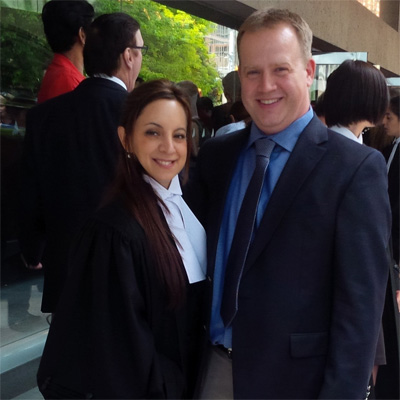
By the time Sabrina had graduated from law school at York University, she had survived cancer four times. At age 31, she faced another diagnosis.
Not only did Dr. Gilbert remove the entire tumour, but he was also able to reconstruct my neck. We joked at the fact that given I was going under the knife anyway, we might as well do some cosmetic surgery while we were there to improve the look of my neck. A two-for-one deal of sorts.
A wedding and scanxiety
By the time 2014 rolled around, I decided it would be the best year of my life.
All I could think about was planning my wedding and marrying my fiancé, Garrett. We set a date: Sept.13, 2014.
Despite the fact that I was now recovering from the surgery wonderfully and was feeling rather well, I still found it difficult to shake the idea that you would come back again – a cancer recurrence was always looming. The anxiety never really goes away.
In February 2014 - seven months before my wedding - my worst fears materialized.
Dr. Abha Gupta, my oncologist at the Princess Margaret, who was always very friendly and personable during our visits, entered the room with a pale look on her face – one of despair. She told me I was to go downstairs to have a CT scan of my lungs and we would discuss the results together.
My stomach turned.
Did you miss Part 3 of Sabrina's Cancer Diary? Click above to watch. (Video: UHNToronto YouTube)
Since my Li-Fraumeni diagnosis, I avoided CT scans like the plague – especially since the radiation can increase cancer risk in patients diagnosed with LFS.
Dr. Gupta informed me that although the chest X-ray came back clear, the MRI of my neck happened to catch the upper part of my lungs. The image revealed "spots" that required further investigation.
At that moment I wanted to crawl out of my body. I had a knot in my stomach the size of a beach ball. I couldn't breathe.
I felt like throwing up.
I was shaking all the way to the CT scan area. This was my worst case of scanxiety thus far. My mom looked worried, but like always, she was trying to be strong for me.
The CT scan felt like the longest two minutes of my life – and the "spots" confirmed the cancer had metastasized, or spread, to my lungs.
My diagnosis: Stage four, metastatic extraskeletal osteosarcoma. I was completely numb.
'The black sheep of cancer'
My wedding was beautiful. The dress, the sunshine just in time for the pictures, the man of my dreams – the day was perfect.

Despite a devastating diagnosis, Sabrina decided to move forward with her wedding – and it was beautiful she says. (Photo: Sabrina Fuoco)
Now, in the prime of my life in my 30s, I'm faced with an incurable cancer.
Living with metastatic cancer comes with a unique set of challenges – it means your cancer has spread from the place where it first started to another place in the body. And with sarcomas in general, the first place to attack is the lungs.
I see metastatic cancer patients as the "black sheep" of the cancer world. We are the patients that are most likely to die from our disease, the patients for whom there is often no cure, no certainty, and in many cases, fewer treatment options.
Up until this point, I had always been stage one – cut out the tumour, recover and move on – but stage four was something totally different. The conversation quickly shifts from, "how can we treat you?" to "how can we make you comfortable?" This doesn't sit well when you are in your 20s or 30s and have the rest of your life ahead of you. I didn't just want to be "comfortable," I wanted to be cancer-free.
An advocate for my disease
While I have an aggressive cancer, I'm fortunate that my tumours are growing very slowly. I'm hopeful that I may be a solid candidate for a new trial, drug or immunotherapy.
While this has been the most difficult diagnosis for me, I try to be the healthiest sick person I know. I've joined meditation groups, yoga, read just about every book on cancer, changed my diet dramatically and most importantly, have become a huge advocate for metastatic cancer patients.
I've joined a new Adolescent and Young Adult (AYA) patient committee at the Princess Margaret this year. The psychological and social impact of a cancer diagnosis is often the hidden part of cancer – the part nobody likes to talk about. The AYA Program explores these difficult topics and encourages young adults living with disease to tackle these issues head on.
I wish I had similar resources when I was growing up – especially during those difficult years during grade school and high school, coping with multiple cancer diagnoses.
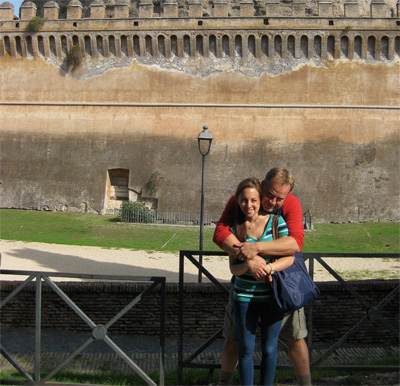
Sabrina is living with a metastatic cancer, but she tries to be the "healthiest sick person" she knows and has become an advocate for her disease. (Photo: Sabrina Fuoco)
Despite having what I call a "career in cancer" - having faced cancer all my life - no one could have ever prepared me for a metastatic cancer diagnosis. Truly, you can never get used to living scan by scan or in three-month increments.
Metastatic disease was something scary that I had heard about. I definitely never thought I would be faced with an incurable cancer in my early 30s, just when my life was starting. Facing one's mortality is never easy, but is further complicated when you are expected to do so in the prime of your life.
Although discussions regarding survivorship and being cancer-free are pleasant to have, we must start having discussions around what it means to have a metastatic, incurable, chronic, or terminal illness.
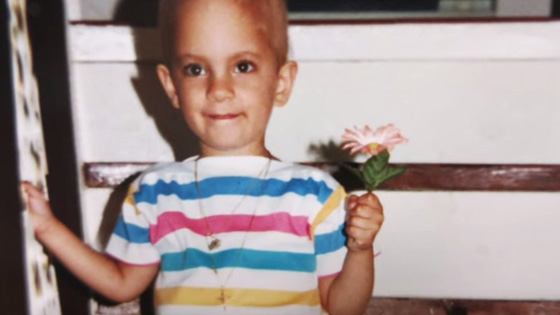
Sabrina's past diagnoses were always stage one. With treatment, she had been able to beat five cancers. A metastatic diagnosis, at stage four, is a very different reality, she explains. (Photo: Sabrina Fuoco)
One of the biggest obstacles facing a metastatic cancer diagnosis is the lack of awareness surrounding the disease.
My goal is to bring awareness in the hopes of one day finding a cure for everyone affected by metastatic cancer. I would love to see an organization created whereby support and financial resources are strictly put towards metastatic disease, regardless of the type of cancer.
We need to be able to offer these individuals much more than simply "making them comfortable" or telling them to go out and enjoy what is left of their lives.
Ultimately, we must offer them the hope that they too can be cancer-free.
I plan to work with the AYA program in order to advocate on behalf of metastatic cancer patients, especially young adults faced with this devastating diagnosis. These individuals require support both emotionally and financially. Like me, sadly many metastatic cancer patients are unable to work in their desired professions. Many aren't able to go to school.
These bright rising stars are unable to use their skills, talents, creativity and education.
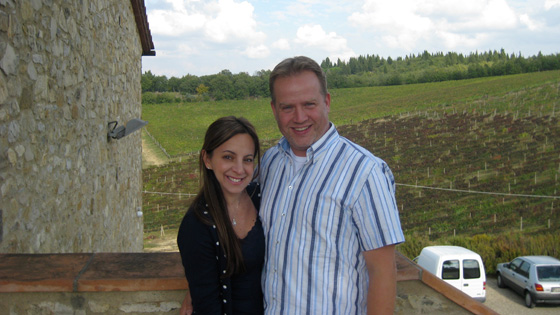
Metastatic cancer has taught Sabrina what's truly important in life, and she's learned to enjoy every moment. (Photo: Sabrina Fuoco)
In the meantime, I am living my life to the fullest as best I can.
I try to focus on the present and live in the moment. I am meditating regularly, eating healthy, exercising, blogging, and looking into alternative and complementary medicine.
Metastatic cancer has taught me to appreciate the little things in life, like how good an espresso break is, or how beautiful the sky looks at night when it's filled with stars. I try not to waste my energy on the little things that do not significantly impact my life. Although this is easier said than done at times, I am doing my very best to enjoy what really matters most to me.
So cancer, I will keep on fighting, and will not lose my zest for life nor my will to live.
I won't ever let you take that from me.
Until next time,
Sabrina
Sabrina Fuoco is a patient in the Adolescent and Young Adult (AYA) Program at Princess Margaret Cancer Centre. This is the fourth and final instalment of the 'Dear Cancer' series.
